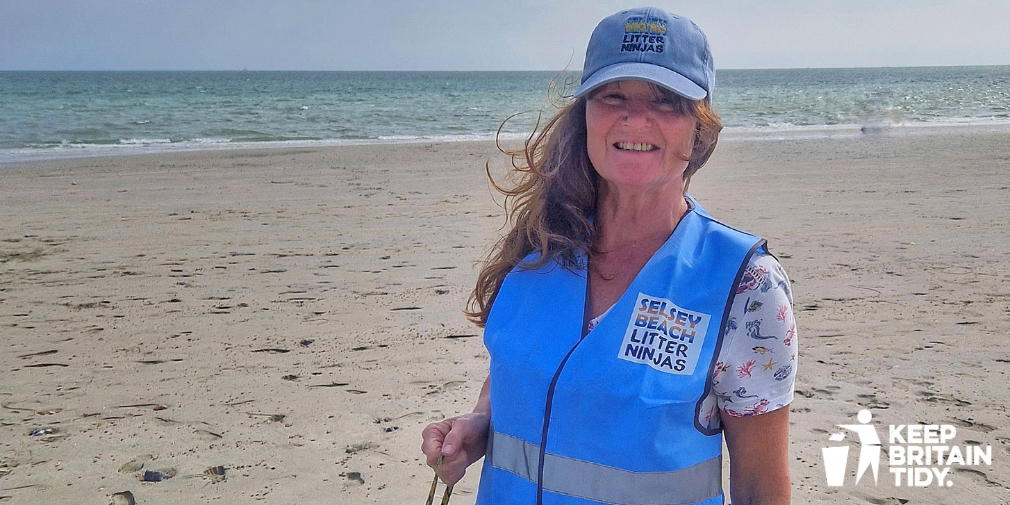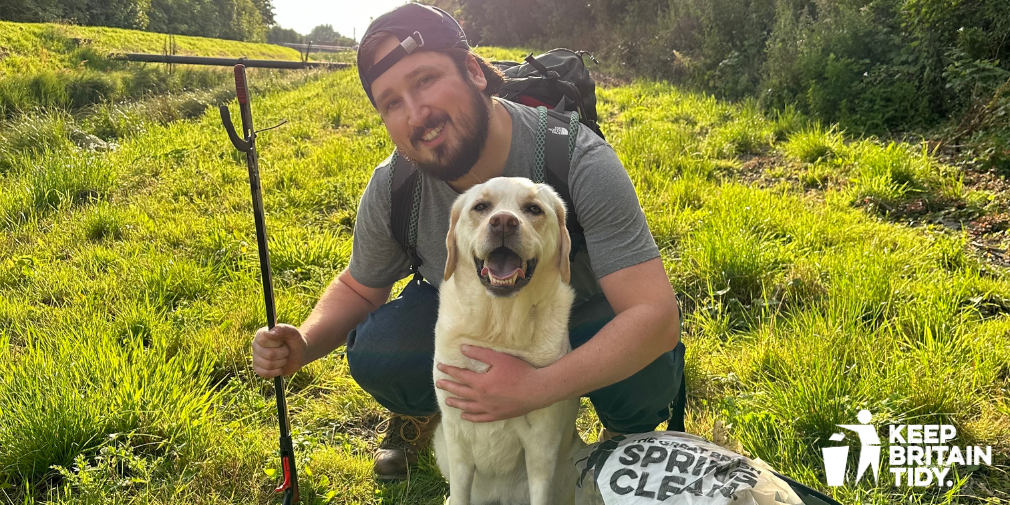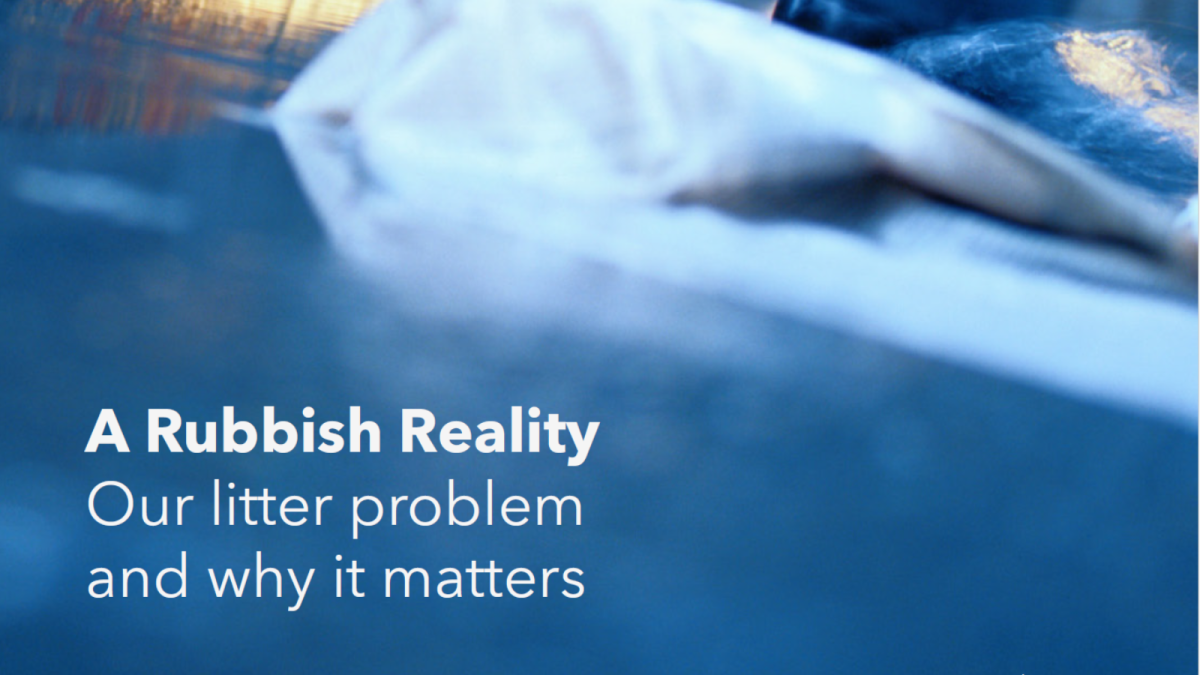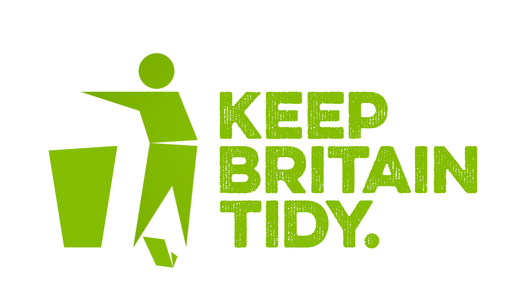At Keep Britain Tidy, we believe that every act to protect the environment, no matter how small, makes a difference. So, when we all come together to take the same action at the same time, that impact is multiplied.
We believe that channelling our collective energy into positive action holds great power.
But why do we need to pick up litter, and what difference can it make?
Litter Lasts A Lifetime

 Once discarded, litter remains in our environment for decades, making its way from land into our waterways and oceans - plastic bottles can last around 450 years.
Once discarded, litter remains in our environment for decades, making its way from land into our waterways and oceans - plastic bottles can last around 450 years.
During the Great British Spring Clean - and beyond - many of our volunteers focus their attention on this issue.
Sea swimmer and nature lover Donna Trethewey has spent the last 30 years picking litter from local beaches in the South East.
She founded the Selsey Beach Litter Ninjas, whose volunteers pick up and recycle tonnes of beach litter, from angling line, weights, tackle, rope, rubber, polystyrene, and plastic waste to cans and bottles.
She explains: “The beach has been my playground, sanity-restorer, inspiration and source of wonder, joy and comfort all my life. I've always cared about the environment and completed a degree in Environmental Science as a mature student. As a keen sea swimmer I'm also very concerned about the state of our seas and love nothing more than seeing marine life thriving.
“I've picked litter off the beach for 30 years but one day I realised that there were probably others doing it too and wouldn't it be great to band together, motivate each other, have fun along the way, inspire others and achieve more together."
Litter harms wildlife and pets

 The RSPCA received around 13,000 calls over the last four years about animals that are caught up in or injured by litter. By removing materials that don’t belong from their natural habitats, we protect wildlife and marine life, as well as our domestic pets.
The RSPCA received around 13,000 calls over the last four years about animals that are caught up in or injured by litter. By removing materials that don’t belong from their natural habitats, we protect wildlife and marine life, as well as our domestic pets.
Zac Robinson and his beloved pet dog Ellie know first-hand the danger and impact of littering on our streets.
When Ellie was an inquisitive puppy she picked up a full tube of superglue on her walk, and before Zac could even tell what had happened, super glue oozed into Ellie’s mouth and started to stick her tongue, gums and lips together.
She was rushed to the vets where an alcohol solution and a deep clean was performed to remove all the hardened excess of glue, and although she suffered a poorly tummy she thankfully made a full recovery from the incident four years ago.
Fearing other dogs would get injured, Zac and Ellie started picking up litter on their walks around Grimsby, trying to spot dangerous items and put them into the bin before they caused harm – and have found all kinds of vintage items including crisp packets and cans from the 1970s.
Zac explains: “Once you start to notice litter, you see more of it everywhere.
“If you want to get started, just remember it's not all dirty work. You don't have to go all out and pickup every horrible thing you find on the floor if you don't want to. You can help out by doing something like spotting a frisbee on the beach that has no owner or an abandoned bucket - the wildlife will be safer if you remove it."
The Cost of Litter

 Each year, as a country, we spend hundreds of millions of pounds clearing up litter. This is money that could be better spent on other public services, like social care and education.
Each year, as a country, we spend hundreds of millions of pounds clearing up litter. This is money that could be better spent on other public services, like social care and education.
There are also social costs.
Our landmark report A Rubbish Reality: Our litter problem and why it matters exposes the alarming scale of England’s litter crisis and its disproportionate impact on the nation’s most deprived communities.
More than 90% of the 1,140 miles of urban and rural sites surveyed by Keep Britain Tidy over the past decade were found to contain litter, with the latest survey showing just nine in every 100 locations in England to be litter-free.
Over three quarters (77%) of people believe the country’s litter problem has got worse in recent years, with seven in ten now noticing litter in their local area daily.
Deprived communities are disproportionately impacted, with researchers finding almost three times as much litter in the most deprived areas compared with the least deprived, while litter-free spaces were seven times less likely to be found in the most deprived communities.
A Wasted Resource

Litter is a wasted resource. Each day, around 20 million* drinks containers are ‘lost from the loop’ (this means, they don’t get recycled). Plastic bottles, aluminium cans and glass bottles are all recyclable and can be turned into new drinks vessels.
But if they are littered, the valuable materials they are made of are wasted. It takes less energy to recycle than make new, so capturing these materials is critical.
Government estimates suggesting the upcoming Deposit Return Scheme (DRS) could cut littered drinks containers by 85%, and this initiative has the potential to deliver profound benefits where they are most needed
While the upcoming introduction of the scheme is fantastic progress, urgent action is still needed to tackle other forms of litter that blight the places we live, visit and those in between - so by taking part in the Great British Spring Clean alongside thousands of others, we can make a huge collective impact!
Taking Care of our Neighbourhoods

Research from Keep Britain Tidy shows that people feel less safe, and house prices are affected, when an area looks littered and uncared for. By taking care of our neighbourhoods, we increase feelings of pride and safety.
Volunteer Inara Dundure pledged to pick 200 bags of litter around her neighbourhood while using her mobility scooter and walking aids to get around.
Inara moved to Greater Manchester from Latvia more than a decade ago, and despite not being able to walk very far, she refuses to let her health issues be a barrier to her protecting the local environment – and even says she benefits from the physical exercise in the outdoors.
She began volunteering in 2017, and last year became part of the Salford Litter Heroes group, and also started a Neighborhood Watch scheme two years ago.
She says: "I do litter picks on my own which I don't advertise but once a month I advertise community litter picks where I hope more people can get together and clean up bigger areas.
“People seem more caring than they were before. I’m working hard to get the community together to be greener and safer for everyone."
Getting Involved
The Great British Spring Clean and Great Big School Clean will take place from 21 March to 6 April, 2025.
Pledging to take part couldn’t be easier, simply pledge as an individual, a group or a school and let us know how many bags you pledge to pick up.
